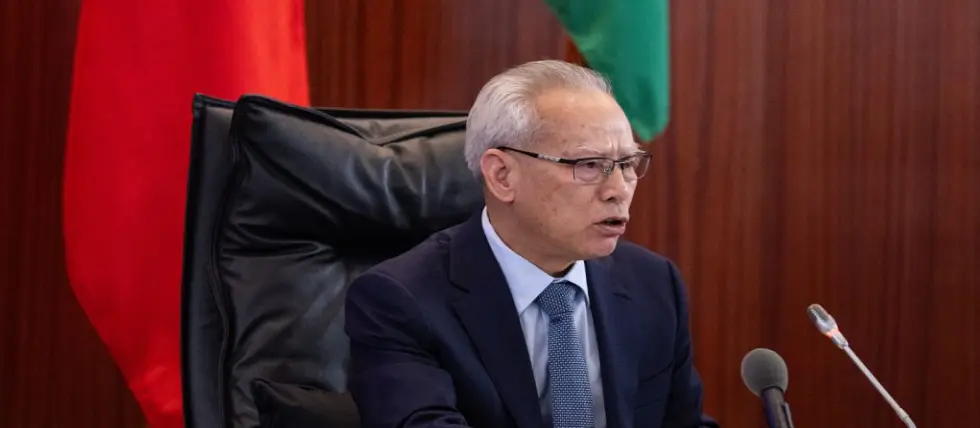Macau Chief Executive: Macau Won't Target US Casino Operators over Trade War
Macau Chief Executive Ho Iat Seng has clarified that US-backed casino operators in the region will not be subjected to retaliatory measures amid ongoing geopolitical tensions between China and the US. His remarks came during a media briefing following the visit of Xia Baolong, director of the Hong Kong and Macau Affairs Office under China's Central Government.

During the briefing, Ho emphasized that Macau remains committed to welcoming foreign investment as a cornerstone of its economic strategy. The statement provided a definitive stance on the position of American gaming firms operating in Macau, easing concerns that the U.S.-China trade conflict could extend to the region's lucrative casino industry.
Related: Macau-Based Games Supplier LT Game Bans US Sales over Tariff WarHo reiterated that the recent Policy Address outlines the region's support for foreign enterprises and affirmed that all investments, provided they comply with local laws and regulations, will receive the protection and backing of the Macau Special Administrative Region (SAR) government. This marks the first direct response from Macau authorities to speculation that American casino operators might face consequences linked to deteriorating relations between China and the US.
Three US-affiliated companies—Sands China, MGM Macau and Wynn Macau—hold 10-year gaming concessions that are central to their global operations. These companies collectively contribute a significant portion of Macau's tax revenue, with gaming making up over 80% of the SAR's total tax intake. As a result, the regulatory environment in Macau is of considerable importance to their continued profitability and investment decisions.
More Business News
Tariff Deal Could Help Macau Tourism
The recent easing of trade tensions between China and the US has also played a role in mitigating fears surrounding the fate of US-linked businesses in the region. Both governments have agreed to a 90-day suspension of certain tariffs, with the US reducing levies on Chinese imports from approximately 145% to 30%, while China has lowered its tariffs on US goods from 125% to 10%. This mutual agreement has introduced a degree of stability and opened a window for further negotiations between the two economic powers.
Ho also addressed broader economic concerns facing Macau, particularly its continued reliance on gaming revenues. He acknowledged that shifting away from a gaming-dependent model presents significant challenges but stressed that Macau's business community remains aligned with national economic priorities. He emphasized the importance of cultivating a unified approach to reduce this dependence and explore diversified avenues for sustainable development.
Macau's tourism sector has also experienced a transformation, with shifting consumption patterns among visitors. Ho noted that although tourist numbers are on the rise, per-capita spending has declined. He attributed this change in part to evolving preferences among younger travelers, who now seek different experiences compared to previous generations.
Ho stated that the government has initiated new promotional efforts aimed at bolstering tourism and expanding into new markets. These campaigns are intended to target Portuguese-speaking countries, Spain, and Southeast Asia, with the dual goal of attracting more diverse visitors and strengthening the competitive edge of local small and medium-sized enterprises.
RELATED TOPICS: Business
Most Read
Must Read
 Interviews
Interviews
Sweepstakes Casinos: Thriving in an Ever-Changing Industry – Interview with Attorney Stephen C. Piepgrass
Feb 17, 2025 Interviews
Interviews









Review this New Post
Leave a Comment
User Comments
Comments for Macau Chief Executive: Macau Won't Target US Casino Operators over Trade War